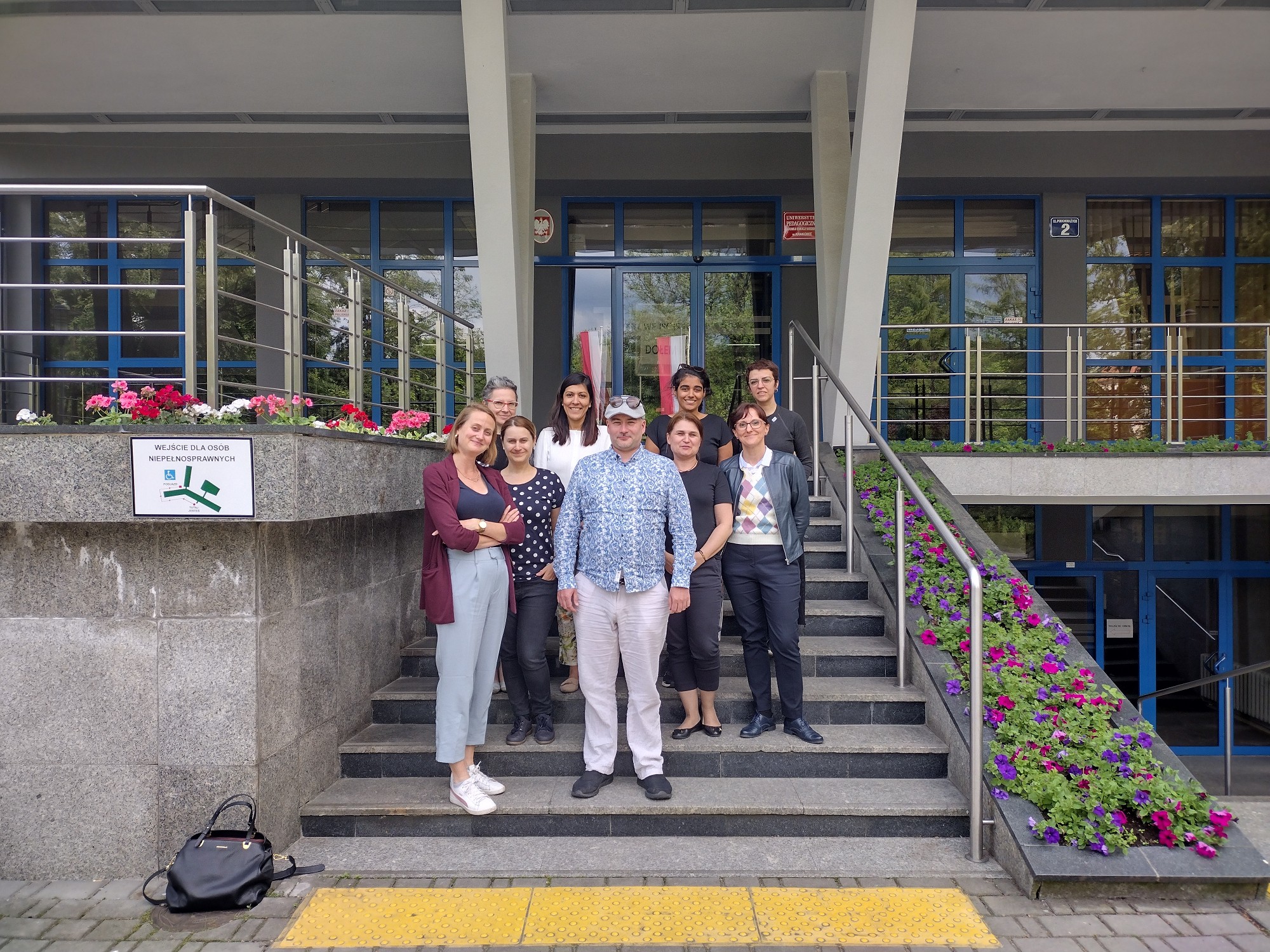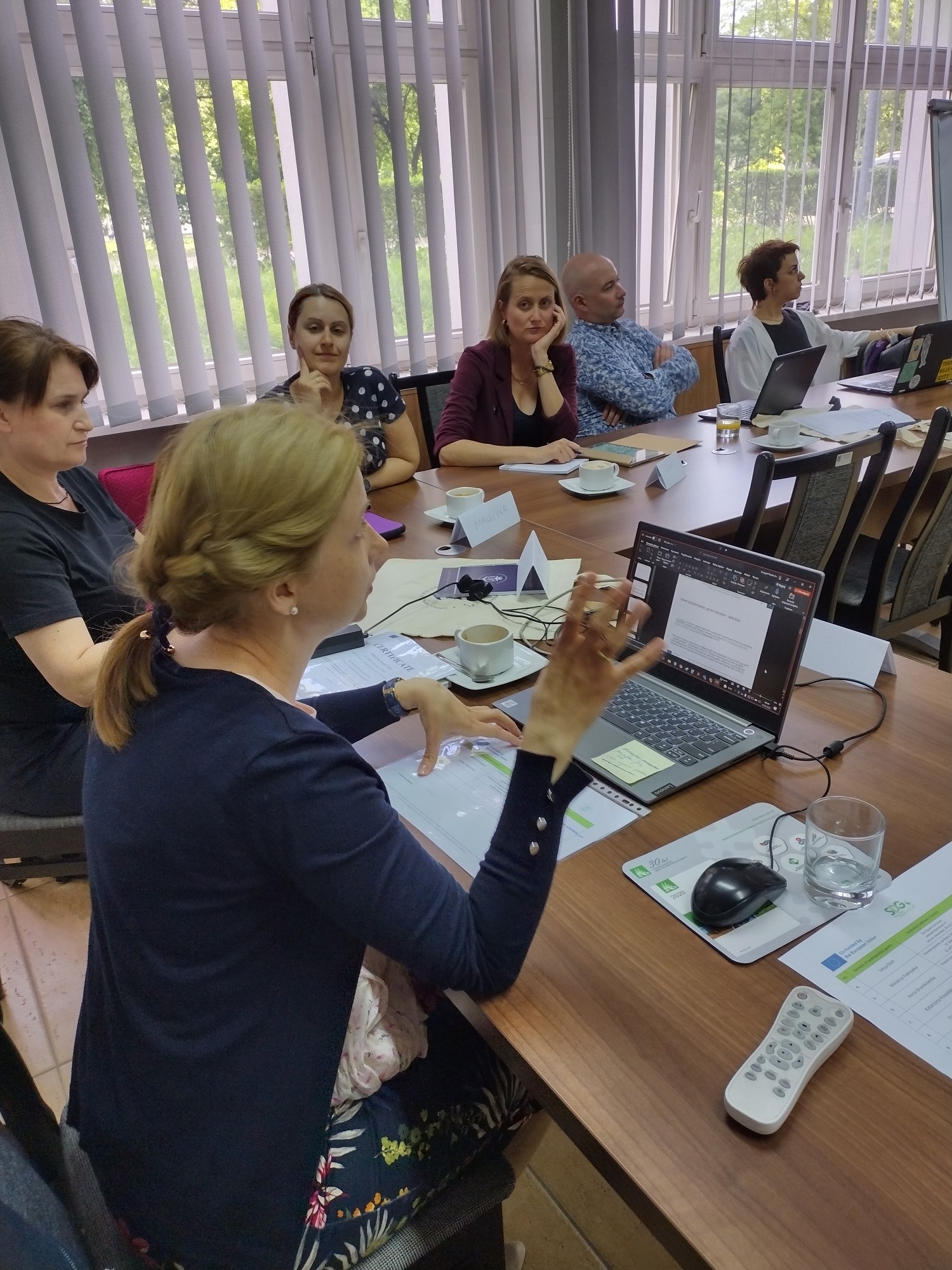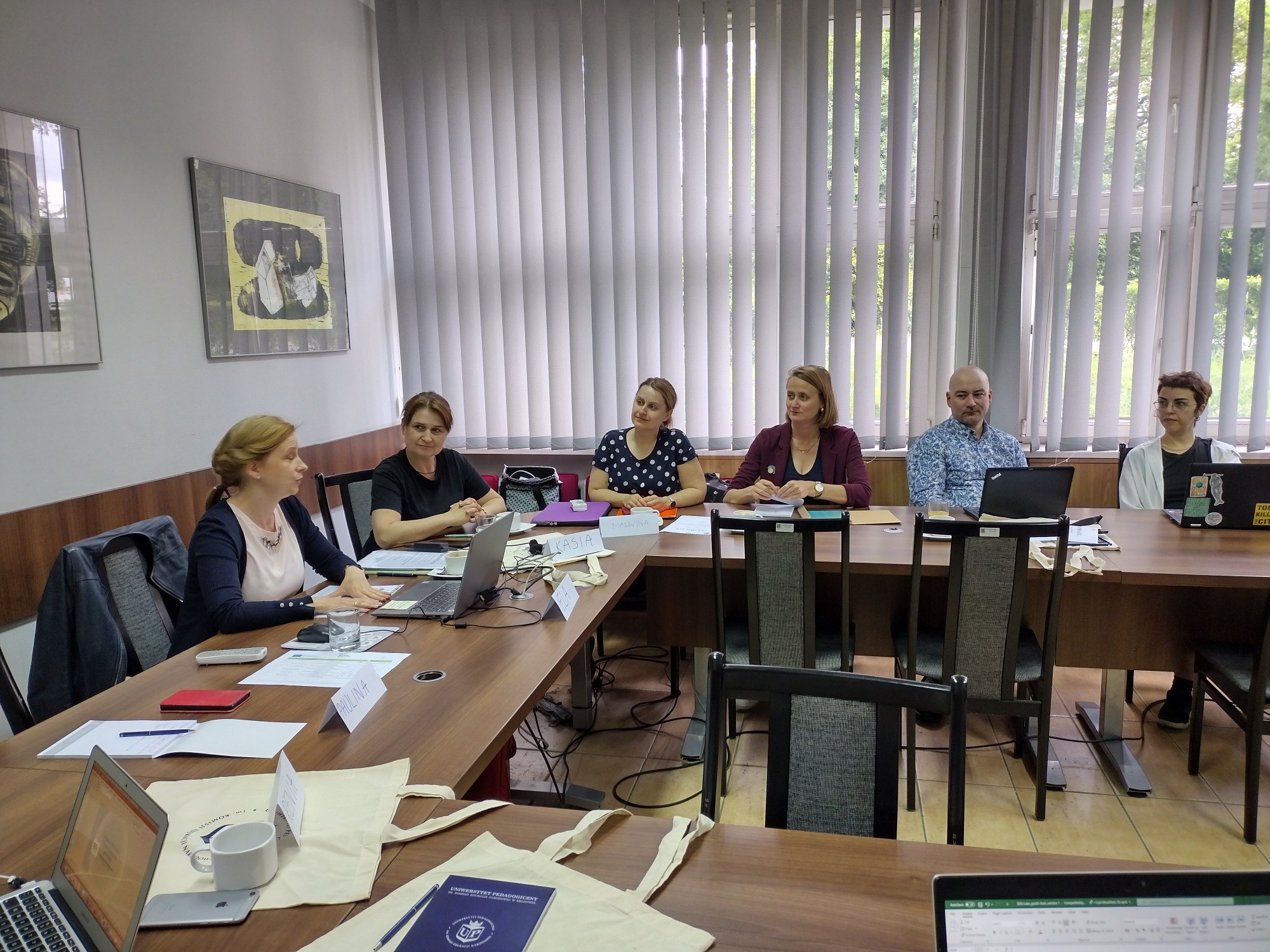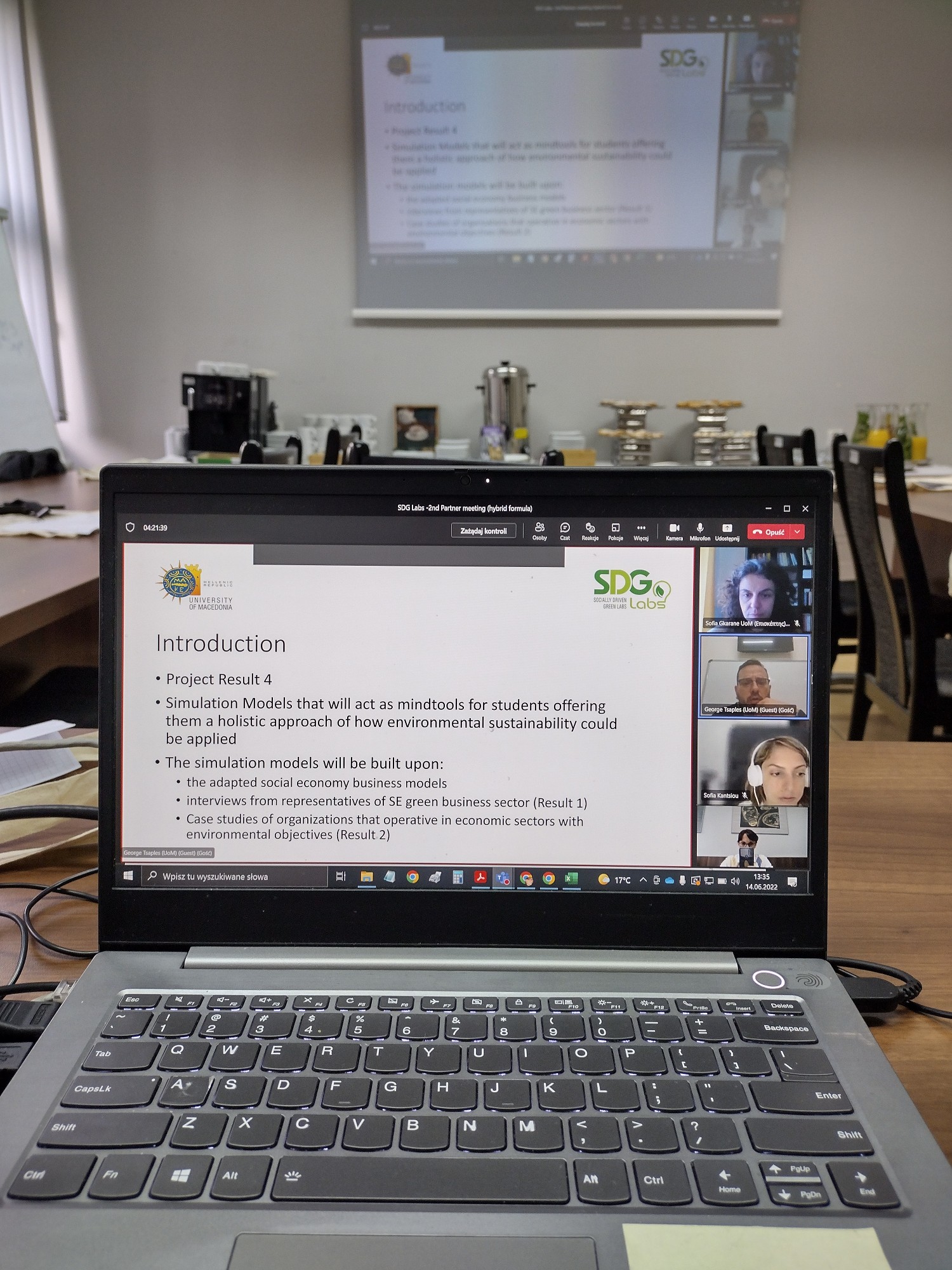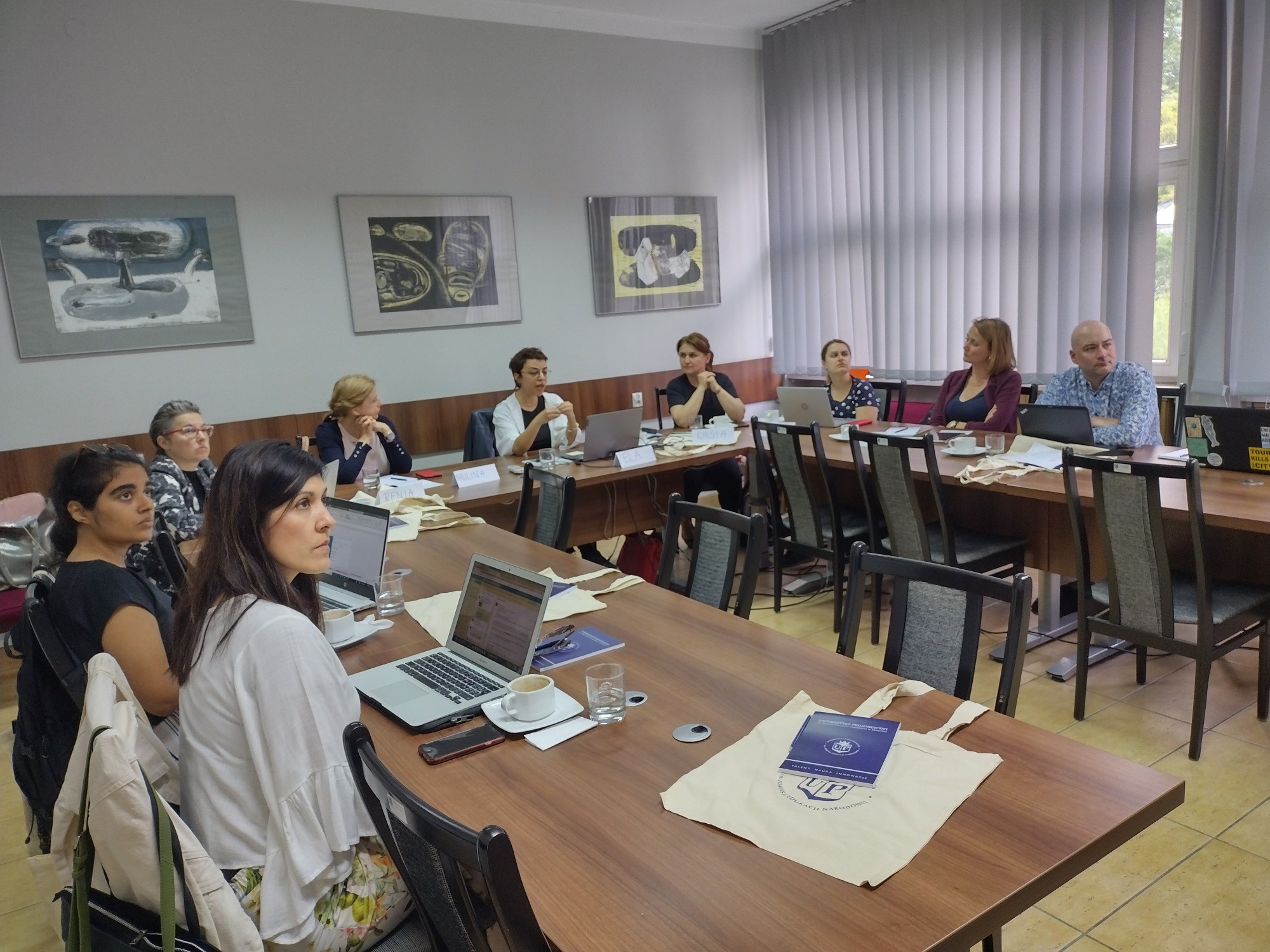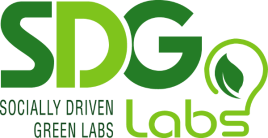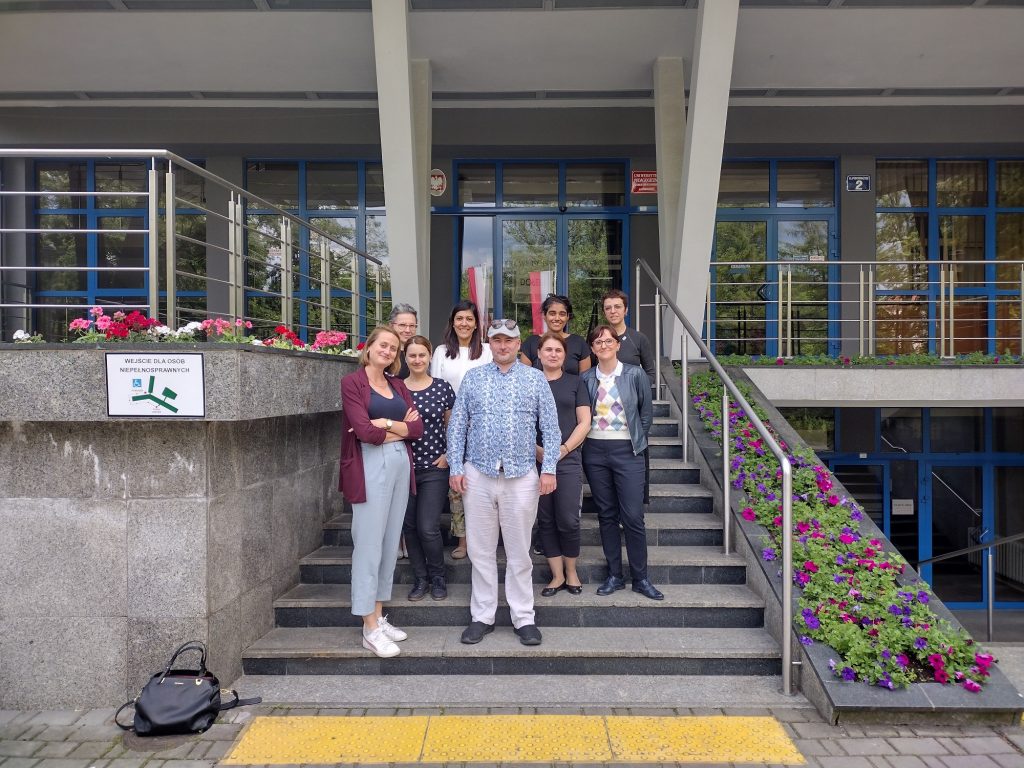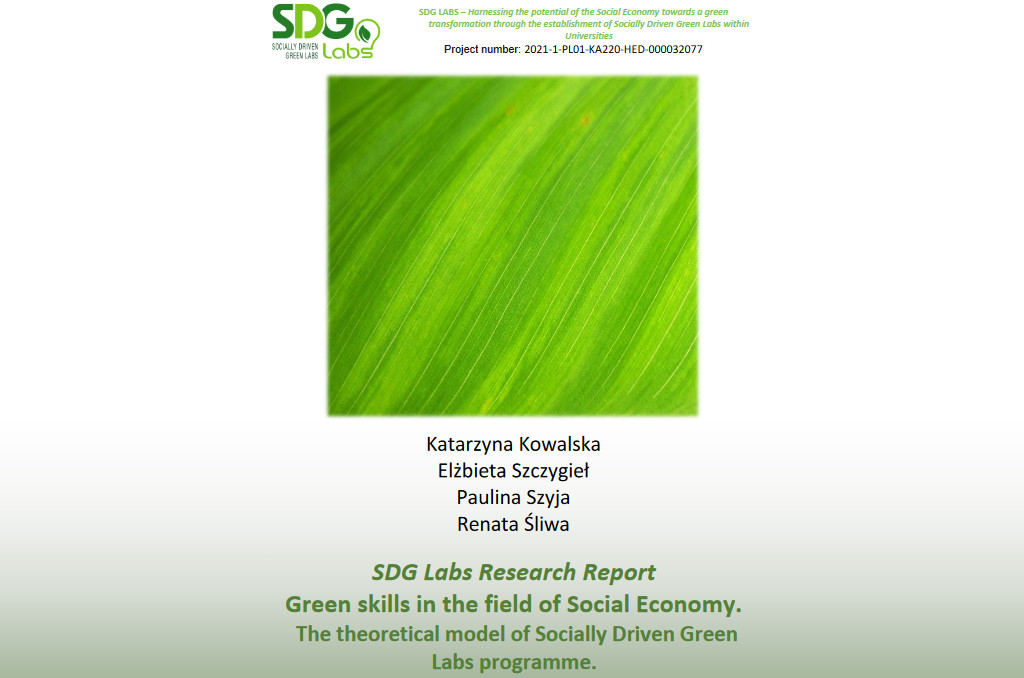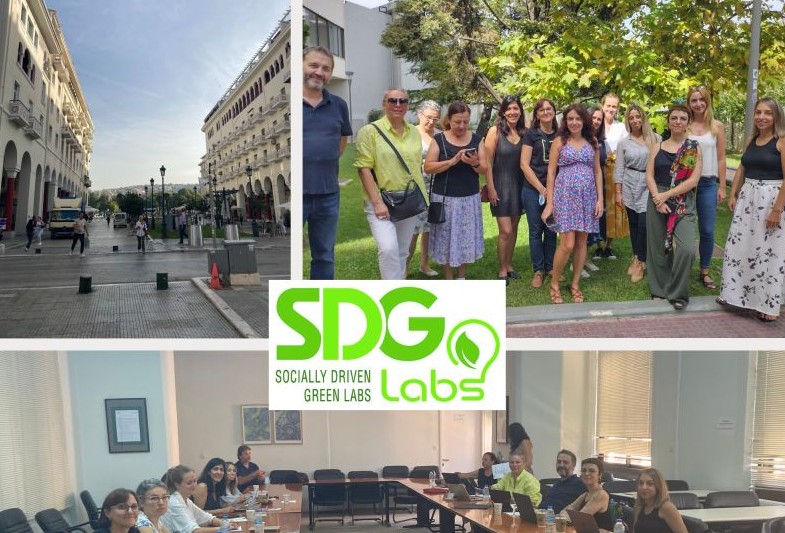The second meeting of the Partners of the “Socially Driven Green labs” project took place on 14 June this year. The event, organised in a stationary format with the option of on-line connection, was attended by representatives of Partner Institutions from the Czech Republic, Greece, Belgium and Poland.
The meeting provided an opportunity for those involved in the project to get to know each other personally, who will work together over the next two years to develop so-called green skills among social economy students. These skills may prove crucial in the future for social economy actors who would like to be involved in the green transformation of the economy.
The main topic of the meeting was to discuss the completed process of developing the report after the surveys among the three target groups (representatives of social enterprises, academics and students). The aim of the research was to identify the state of knowledge and skills and competences in the field of green transformation and the circular economy. The second element of the meeting was the ongoing work on the On-line Gallery, which will bring together various types of teaching and learning materials through which green skills can be developed.
The partnership implementing the project consists of: Pedagogical University of Krakow (project coordinator), University of Economics in Prague (Czech Republic), University of Macedonia and Stimmuli for Social Change Association (Greece), The Square Dot team (Belgium) and Association for Social Cooperatives (Poland).
The project will undertake an international research study on green skills in the social economy. They will attempt to define current and future green skills gaps among employees and members of social economy actors, which is important for the realisation of an inclusive green transformation. Social economy actors provide employment to more than 13.6 million people in Europe and are often pioneers in local green ventures by promoting sustainable systems of cooperation between businesses and citizens with the ultimate goal of tackling climate change. The planning of the research will be used to develop a comprehensive support for enhancing green skills among academics and social economy students in the form of business simulators and a summer school, among others.
